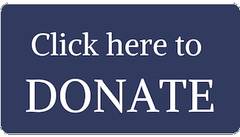This Shabbat is unlike any other in our calendar. Nestled between Rosh Hashanah and Yom Kippur, Shabbat Shuva, Shabbat of Return, invites us into a sacred pause. We are suspended in this liminal space, no longer at the gates of the New Year yet not quite sealed in the Book of Life. The Aseret Y’mei Teshuva, these Ten Days of Repentance, are designed for deep reflection and honest self-accounting. They remind us that transformation does not happen with a single prayer or in one day, but rather through the steady work of examining who we are, how we live, and what we bring into the world. On Shabbat Shuva, we ask not only, “What do I want to return to?” but also, “Who am I becoming?”
This feels especially urgent in our time. We live in a world where we are constantly shaken, by the stress of daily life, by global uncertainty and polarization, and by the noise of social media. Our tradition reminds us that these moments of disruption are opportunities. They reveal what we carry inside, and they challenge us to cultivate lives of meaning, kindness, and resilience.
In this spirit, I offer this parable:
Spilling Coffee from the Cup
Adapted by Rabbi Paul Kipnes and Rabbi Julia Atlas Weisz
from Why Did You Spill the Coffee? A Great Analogy
Contributed by Ashish Bhavnani, Shared by Chandru Gidwani
A young woman was holding a cup of coffee
At the synagogue
when someone came along
and accidentally hit her arm,
making her spill the coffee everywhere.
The rabbi saw what happened,
Rushed over to make sure she was okay,
And then
Sensing an opportunity for a life lesson
asked:
“Why do you think you spilled the coffee?”
The woman answered,
"Well, of course,
Because someone bumped into me!"
The rabbi shook her head
And said,
“Not precisely.
You spilled the coffee
because the coffee was in the cup.
If tea had been in it,
you would have spilled tea.
Whatever is inside the cup
is what will come out.
Therefore,
when life comes along
and shakes you,
which will happen,
whatever is inside of you
will come out.
It’s easy to fake it
until you get rattled.
Said the Rabbi:
So we have to ask ourselves….
What’s inside our cups?
When life gets tough,
What spills over?
Anger, bitterness,
harsh words and actions?
Or
Joy, gratefulness,
peace and humility?
With what will we fill ourselves,
When it sometimes feels like
our cups are being drained?
The choice is yours!
In these Yamim Nora'im,
These High Holy Days,
May we work diligently and intentionally
Toward filling our cups
With gratitude and forgiveness,
With joy and gentleness,
With words of affirmation for ourselves and others
So that this year,
Will truly be
A shana tova – a good year, a sweet year, a year filled with all the worthy blessings of our hearts.
As we journey through these High Holy Days, life will surely “bump” us, sometimes gently, sometimes with force. The parable teaches us that what spills out in those moments reveals what we have been holding all along. This season of teshuva calls us to choose, with intention, what fills our inner cup. Will it be resentment and judgment, or compassion and gratitude? Will it be harshness, or humility and hope?
In a society that often rewards quick reactions and sharp words, Shabbat Shuva reminds us to slow down, to breathe, and to return to the core of who we are meant to be. Our tradition insists that change is always possible, that return is always within reach.
This week, I invite you to notice what spills from your cup when you are shaken. Pause and ask: is this what I want to bring into the world? If not, how might I refill my cup with something truer, kinder, more sustaining?
May this Shabbat Shuva strengthen us to release what no longer serves, to return to our truest selves, and to fill our cups with blessings we can share abundantly with one another. In doing so, may we merit a year of sweetness, renewal, and peace.
G’mar Chatima Tova - may you be inscribed for a year of goodness and blessing!
Shabbat Shalom!
Rabbi Sharon L. Sobel
Interim Rabbi
Temple Beth Or
rabbisobel@tboraleigh.org










